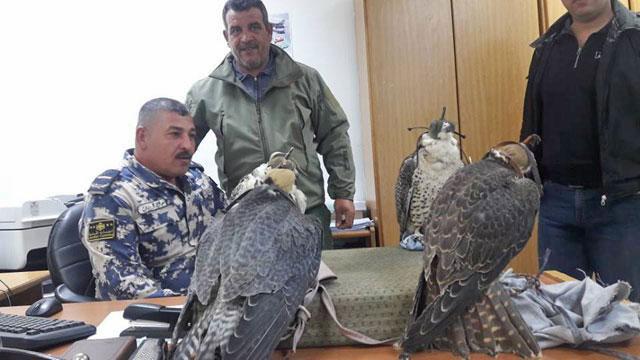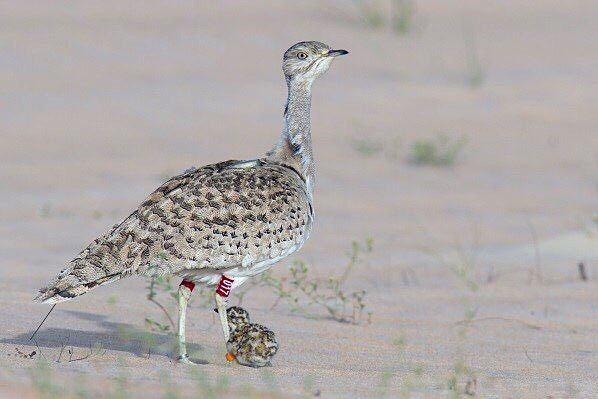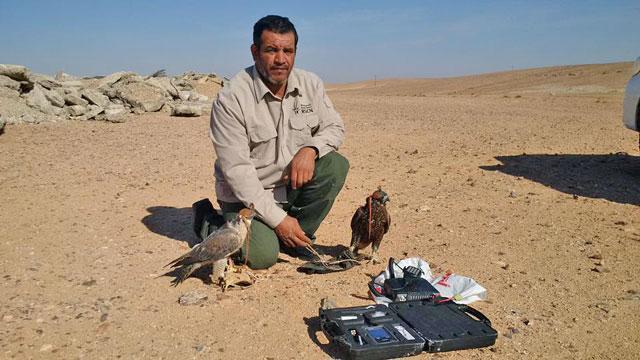You are here
Burqu Nature Reserve to host Kingdom’s first falconry training centre
By Hana Namrouqa - Dec 22,2018 - Last updated at Dec 22,2018

Jordan banned the entry of falcons in 2015, however the Royal Society for the Conservation of Nature recently announced a plan to establish a falconry training centre in the Burqu Nature Reserve to legalise and regulate the practice (JT file photo)
AMMAN — Jordan is poised to host its first falconry training centre at the newly-designated Burqu Nature Reserve in the Kingdom’s eastern desert, according to the Royal Society for the Conservation of Nature (RSCN).
The centre will be located in the newly-approved nature reserve, according to RSCN Director General Yehya Khaled, who said that the centre will regulate and legalise falconry in Jordan’s desert.
“The centre will restrict falconry activities in a certain identified zone and allow us to organise and monitor the [sport],” Khaled told The Jordan Times over the phone.
Jordan banned the entry of falcons into the country in 2015, seeking to protect the Kingdom’s wildlife and prevent the hunting of endangered species.
The RSCN, Jordan’s wildlife conservation and nature protection NGO, said at the time that the decision was taken in agreement with the Ministry of Agriculture and was circulated by the Ministry of Interior to local agencies and embassies of Gulf states in Jordan, to inform their citizens about the decision.
Khaled said that falconers can bring in their falcons as long as they attain authorities’ prior approval and train their birds of prey at the centre only.
Houbara bustards, rare desert birds which were extinct in Jordan until recently, will be released for falconry training at the centre, according to Khaled.
“Only Houbara birds which are deemed to be unfit for release into the wild, because they cannot sustain themselves, will be used in falconry training at the centre,” Khaled highlighted.
Under a partnership between the RSCN and the Abu Dhabi-based International Fund for Houbara Conservation (IFHC), a reintroduction programme began in 2014 for the Houbara bustard, recognised by nature conservationists as “an icon of the Arabian desert”.
The Houbara bustard reintroduction programme started in Jordan as an initiative of Sheikh Mohammed Bin Zayed Al Nahyan, the crown prince of Abu Dhabi and deputy supreme commander of the UAE’s armed forces, according to the RSCN, which said that the bird was last recorded in Jordan in the 1990s and disappeared due to the destruction of its habitat and overhunting.
A total of 1,300 birds were released in Jordan between 2014 and 2017, according to the society, which reported sightings of Houbara nests in the east of the country, nests and chicks in Wadi Araba and nests in the Wadi Rum area.
Related Articles
AMMAN – A new batch of the houbara bustard, a rare desert bird that has been extinct in Jordan until recently, will be released back to its
AMMAN — As falconry training thrives during spring, authorities are intensifying inspections in desert areas to prevent the illegal activity
AMMAN — The Royal Society for the Conservation of Nature (RSCN) has seized and confiscated two falcons in the possession of Arab nationals i


















